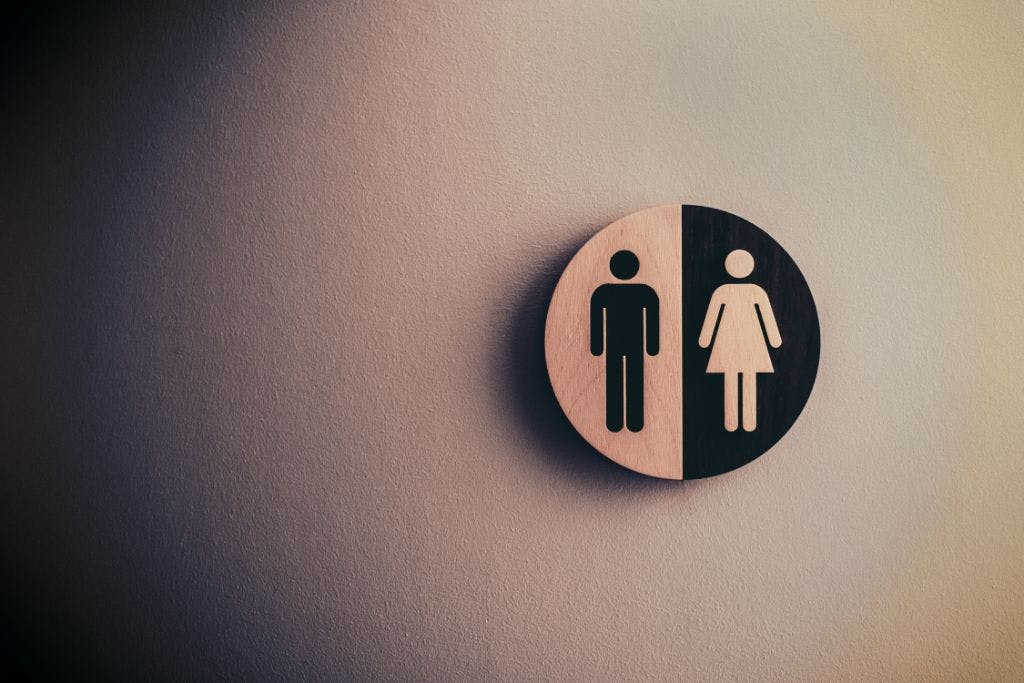First published on Thursday, Jun 04, 2020
Last updated on Wednesday, Jun 19, 2024
Diversity in the workplace is not just a buzzword or a politically correct slogan, it's a fundamental and powerful driver of success in the modern business world.
A diverse workforce represents a rich tapestry of experiences, backgrounds, and perspectives that can propel business leaders to new heights of innovation, creativity, and profitability.
In this article, we will explore the importance of diversity in the workplace, how it can benefit your business and best practices for promoting diversity and inclusion.
But what exactly is diversity in the workplace?
Having a clear understanding of what workplace diversity is, can help you in effectively managing your team and recruiting new employees.
Diversity in the workplace refers to when a company hires employees from diverse backgrounds who possess a broad range of different characteristics including skills, qualifications, age, gender, nationality, or ethnicity.
Creating a diverse workplace is highly valued by many organisations as it gives them the opportunity to not only recognise the unique abilities of their employees but utilise their full potential at work.

What is the difference between equality and diversity?
Equality and diversity in the workplace can mean a lot of things. In general, they're about respecting each member of your workforce for their:
- Individual age
- Gender diversity
- Racial diversity
- Cultural diversity
- Career experience and skills
- Beliefs (religious and philosophical)
- Sexual orientation
- And more
While both are similar, equality and diversity differ in their concepts and goals.
Equality focuses on fair treatment, eliminating discrimination, and ensuring equal rights, opportunities, and resources for all individuals, regardless of their characteristics. It aims at creating a level playing field for different groups.
On the other hand, diversity celebrates different backgrounds, experiences, perspectives, and identities. It promotes inclusion, encouraging a variety of viewpoints and ideas from diverse individuals of diverse cultures, and social and demographic backgrounds.
Diversity recognises the strength of a community or workplace in the richness and diversity of its members. It leverages these differences as assets, benefiting businesses through a broader range of perspectives, creativity, and innovation.
Valuing and embracing diversity also creates a collaborative and inclusive environment.
What is the importance of diversity in the workplace?
Workplace diversity is not only important for ethical and moral reasons, but it is also a key driver of business success and competitiveness.
By embracing diversity, you can tap into a range of perspectives, experiences, and ideas. This leads to increased problem-solving abilities, enriched decision-making processes, and heightened adaptability in an ever-changing business landscape.
There are many benefits to diversity in the workplace such as:
Boosting employee engagement and morale
When your employees see that you value diversity and inclusion, it can boost their morale and job satisfaction. They are more likely to feel valued, engaged, and committed to their work, leading to increased employee engagement, higher productivity, and lower turnover rates.

Fostering innovative solutions
One of the most significant advantages of a diverse workplace is its ability to foster innovation. When you have a team of employees from different cultural, educational, and backgrounds come together, they bring a wide range of ideas, perspectives, and problem-solving approaches.
This diversity of thought can lead to the development of groundbreaking solutions, products, and services. Innovation is not limited to just product development; it extends to processes and strategies as well.
Diverse teams are more likely to challenge the status quo, identify inefficiencies, and implement improvements.
Enhanced creativity
Creativity thrives in environments where individuals feel comfortable expressing their different perspectives and fresh ideas. A diverse workplace encourages employees to think outside the box and explore unconventional solutions to problems.
When employees are free to be themselves and contribute their creativity, it results in a dynamic and vibrant work culture.
Improved problem solving
Diverse teams are better equipped to tackle complex problems. They bring a broader range of experiences and skills to the table, allowing for a more comprehensive understanding of issues.
This diversity leads to more effective problem-solving as different viewpoints are considered, leading to well-rounded solutions.
Attracting the best talent
Workplace diversity can help to create a more welcoming and inclusive culture, which can be a major factor in attracting and retaining top talent.
When evaluating companies, job seekers often look at companies that value inclusivity, as it reflects a commitment to a fair and equal workplace.
A diverse workforce can give your company a competitive edge when recruiting the best and brightest individuals in the job market.
Global expansion
If you are looking to expand, having a diverse workforce is a significant advantage. Cultural sensitivity and the ability to communicate and relate to customers and partners from different backgrounds are essential in the global marketplace.
A diverse workforce provides valuable insights and skills for successful international expansion.

What are the challenges of diversity in the workplace?
While workplace diversity offers numerous advantages, it also comes with its fair share of challenges. These challenges, if not effectively managed, can hinder your ability to harness the full potential of diverse talent pools.
Here are some common challenges associated with a diverse workforce:
Communication barriers
Differences in language, communication styles, and cultural norms can cause misunderstandings and possible language barriers among team members. Effective communication may require additional effort, training, and tools to bridge these gaps.
Implicit bias
Even in diverse workplaces, individuals may hold unconscious biases or stereotypes that influence their decisions, evaluations, and interactions. These biases can affect hiring, promotions, and overall workplace dynamics.
Measurement and accountability
Measuring the success of diversity initiatives and holding individuals and departments accountable for progress can be challenging. Establishing clear metrics and reporting mechanisms is crucial for tracking and improving diversity and inclusion efforts.
Resistance to change
Some employees may be resistant to changes brought about by diversity initiatives. They may feel threatened by new perspectives, practices, or policies and resist their adoption, potentially leading to tension in the organisation.
Managing conflict
Conflicts within diverse teams can be complex due to the various cultural, social, and personal factors involved. Effective conflict resolution strategies and skills are essential to maintaining a harmonious work environment.
Inclusivity challenges
Promoting diversity is not enough; creating an inclusive environment where everyone feels valued and respected can be challenging. Inclusivity requires a commitment to changing your workplace culture and policies to accommodate diverse needs and preferences.
Lack of diversity in leadership
If leadership positions lack diversity, it can send a message that advancement opportunities are limited for certain minority groups. This can hinder efforts to attract and retain diverse talent.
In fact, a study by the Boston Consulting Group found that increasing the diversity of leadership teams leads to improved financial performance. So, clearly overcoming this challenge and increasing diversity in leadership would pay off.
Overcoming these challenges requires a proactive and ongoing commitment to diversity and inclusion. Provide training, resources, and support for employees to navigate diversity effectively, create inclusive policies and practices, and foster a diverse company culture where everyone feels valued and heard.
By addressing these challenges, you can maximise the benefits of a diverse workforce and create a more inclusive and productive workplace.
How to improve your diversity efforts?
It's important to strive towards eliminating discrimination in the workplace. Every individual should have an equal opportunity to contribute and influence every aspect and level of the workplace.
Also, creating a sense of belonging is crucial to ensure that everyone feels safe and comfortable bringing their full and unique selves to work.
When making decisions about diversity management, building diverse teams and diversity in the workplace in general, it's important to adhere to the Equality Act 2010.
The Act protects people from discrimination related to any protected characteristics—of which there are nine:
- Age
- Disability
- Gender reassignment
- Marriage and civil partnership
- Pregnancy and maternity
- Race
- Religion or belief
- Sex
- Sexual orientation
You must consider all diverse individuals and protected characteristics in your day-to-day work and when establishing a diversity and inclusion policy.
Here are some examples of how to establish and improve your diversity efforts:

Educate yourself and employees
When you, your managers and your employees have a broader understanding of diversity in the workplace, it will set a
That's why it's best practice to invest in employee and management training to help them understand the company's diversity goals, why they're essential, and what's expected of management when interacting with employees.
Develop an inclusive hiring process
To build a diverse team, it is crucial to start with inclusive hiring practices. You should evaluate your job descriptions, ensuring they are free from bias and appealing to a wide range of candidates.
Implementing blind CV screenings and offering training to hiring managers can help lessen unconscious biases.
Additionally, expanding recruitment efforts to include more diverse workforce platforms, organisations, and networks can lead to a more diverse pool of applicants.
Offer equal opportunities and fair treatment
Once diverse talent is recruited, it is essential to provide equal opportunities for professional growth and development. You should establish policies that promote fairness, such as pay equity and unbiased performance evaluations.
It's also best practice to create mentorship with diversity advocates and sponsorship programmes can also help underrepresented groups and employees thrive by providing guidance and support.
According to an article in the Harvard Business Review, "Diversity and Inclusion Efforts That Really Work", the best way to establish your policies and programmes is to get managers and leaders involved from the get-go.
By involving managers in the design process you can actually increase your investment and make it easier to implement programmes, which in turn increases your chances of success in the long-run.
Fostering an inclusive workplace culture
Building a diverse team is only the first step. To truly leverage the benefits of diversity, you must foster an inclusive workplace culture. This can be achieved by promoting open communication, encouraging the sharing of diverse perspectives, and creating a safe space for dialogue.
Diversity training programmes on cultural and unconscious bias can also help employees develop a deeper understanding and appreciation for cultural diversity.

How BrightHR can help with diversity in the workplace
In today's rapidly changing business landscape, diversity in the workplace is not just a nice to have; it is a strategic imperative.
Businesses that embrace diversity reap numerous benefits, from increased innovation and creativity to improved problem-solving and stronger talent acquisition.
Additionally, promoting diversity is not just about staying in line with the law. It's about creating a workplace that values every individual, regardless of their background or identity, leading to mutual respect.
By fostering diversity and inclusion, businesses can unlock their full potential and thrive in an ever-evolving world.
With the help of BrightHR's BrightLearn, you can easily develop your staff's skills, refine your leadership skills and improve workplace culture with a CPD-accredited course on equality, diversity and inclusion awareness.
But that’s not all, with an extensive library of customisable and legally compliant policies and guides, you can save time on creating your own diversity and inclusion policy and tailor a ready-to-go template to meet your specific business needs.
And if you need help with that, we have a 24/7 team of HR and employment law experts ready to answer any questions you may have.
Find out more by booking your free demo.
Have a question?
Ask away, we’ve got lightning fast answers for UK business owners and employers powered by qualified experts.










